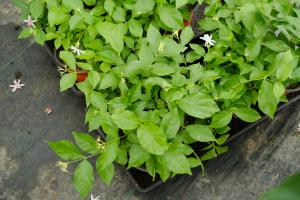Introduction:
Freshly planted seeds need proper care and attention to grow into healthy plants. One of the most important aspects of caring for newly planted seeds is watering. Many gardeners are unsure of how often they should water their newly planted seeds. In this article, we will provide you with some guidance on watering newly planted seeds.
Factors to Consider:
Several factors should be considered when determining how often to water newly planted seeds. These factors include soil type, temperature, humidity levels, and the type of seed planted. Generally, newly planted seeds should be watered more frequently than mature plants. This is because young, delicate seeds need more moisture to germinate and establish roots.
Frequency of Watering:
The frequency of watering will vary depending on the factors mentioned above. A good rule of thumb is to water newly planted seeds every day for the first week. After the first week, the frequency of watering can be reduced to every other day or every two days, depending on the weather conditions. It is essential to monitor the soil's moisture level and adjust the watering schedule as needed.
Watering Techniques:
Proper watering techniques are crucial when caring for newly planted seeds. Using a gentle watering technique, such as a soaker hose, can prevent damage to the seedlings. Avoid using a hose with a high-pressure nozzle, which can displace the seeds and cause them to dry out. Watering in the morning or late afternoon is best, as it allows the plants to absorb moisture before the heat of the day and reduces the risk of fungal growth.
Signs of Over-Watering:
Over-watering can be just as harmful as under-watering when caring for newly planted seeds. Signs of over-watering include yellowing leaves, wilting, and root rot. If you notice any of these signs, reduce the frequency of watering and allow the soil to dry out before watering again.
Conclusion:
Watering newly planted seeds can be a bit of a balancing act, but it is crucial for the health and growth of your plants. By considering factors such as soil type, temperature, and humidity levels, and using proper watering techniques, you can ensure that your newly planted seeds get the hydration they need to thrive. Remember to monitor the moisture level in the soil and adjust your watering schedule as needed. With a little bit of care and attention, your newly planted seeds will grow into healthy, vibrant plants.

 how many times do yo...
how many times do yo... how many planted tre...
how many planted tre... how many pine trees ...
how many pine trees ... how many pecan trees...
how many pecan trees... how many plants comp...
how many plants comp... how many plants can ...
how many plants can ... how many plants and ...
how many plants and ... how many pepper plan...
how many pepper plan...





























